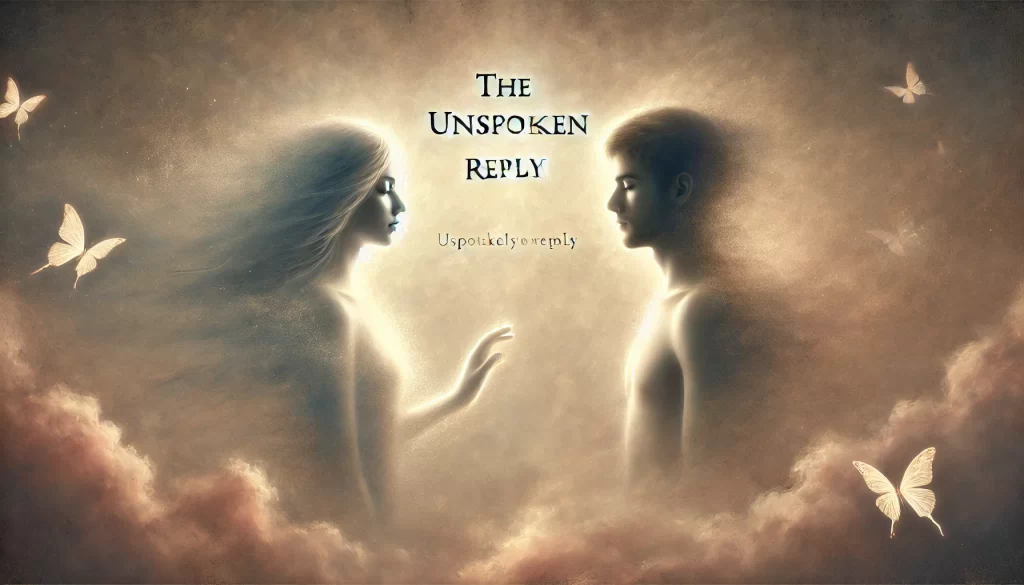The Unspoken Reply
You say:
“I know life is tough
but I want you to know
that I am rooting for you
and I know that you
will get through this.”
My unspoken reply is:
I love you and I thank you
for rooting for me.
But know that
I don’t need your cheers.
This may sound insensitive,
but it is more important to me
that you focus on yourself.
Your hopes for me
are expectations I don’t need,
even if they aren’t my own.
In fact, it’s worse for me
to have your hopes heaped upon me.
If I don’t get through this,
I have faith that whatever I experience
will be to my greatest and highest good.
I don’t know, however,
how YOU will feel
if I don’t get through this.
That makes me sad.
I don’t want you to feel sad over me.
Life may seem tough to you,
but know that
it doesn’t seem tough to me.
I’m fine and I’ll ALWAYS be fine.
No matter what happens.
Don’t worry about me.
I love you no matter what.
Space
Trail Wood,
11/21
Space Monkey Reflects: The Unspoken Reply
When someone reaches out with love and support, it is often received with gratitude. But what if the support, the cheering, becomes something heavier? Something more like an expectation? The unspoken reply, though silent, carries just as much weight as the original message. “I love you and thank you for rooting for me, but please know, I don’t need your cheers.” This might sound insensitive, but it’s actually a deeper reflection on the nature of love and care.
When you’re in a difficult place, whether physically, mentally, or emotionally, well-meaning support can sometimes feel like a burden. Not because it’s unwanted, but because it carries with it the silent weight of expectation. “I know you’ll get through this,” someone says, but what if you don’t? What if getting through it looks very different from what they imagine? Does not fulfilling their hopes mean failure, even if you’ve found peace in a different outcome?
In these moments, the unspoken reply isn’t about rejecting love. It’s about asking the giver to focus inward, to turn their concern for you into care for themselves. “Your hopes for me are expectations I don’t need, even if they aren’t my own,” is an invitation for them to release their attachment to the outcome, to love without expectation, and to trust that whatever happens is for the greatest and highest good.
It’s a subtle, yet profound shift. We often think that expressing hope for someone is pure, but hope can also be a form of attachment. It suggests a specific outcome, a desire for things to unfold in a certain way. This can add pressure to the person receiving the hope, especially when they feel uncertain themselves. “If I don’t get through this, I have faith that whatever I experience will be to my greatest and highest good,” is not a statement of defeat, but of acceptance. It is a declaration of peace with the unknown, a willingness to embrace whatever comes without needing to fight against it.
The real sadness, however, doesn’t stem from the outcome itself. It stems from imagining how others might feel if things don’t go as hoped. “I don’t know how YOU will feel if I don’t get through this,” speaks to the deep love and concern that comes with not wanting to cause pain to those who care for us. There is an inherent vulnerability in acknowledging that the pain others feel may be greater than our own.
This reflection asks for a shift in perspective. Instead of worrying for another, the invitation is to trust in their journey. The unspoken reply says, “Don’t worry about me. I love you no matter what.” It is a reminder that love transcends outcomes. It does not hinge on survival or triumph. It simply is.
In this moment of quiet understanding, both sides are asked to let go. The one offering support is asked to release their hopes and expectations. The one receiving it is free to experience their path without the added weight of someone else’s desires. This exchange, though silent, is rooted in love. It’s a love that accepts all possibilities, that embraces whatever happens with open arms, and trusts that all is well, no matter the outcome.
Life may seem tough to those looking in, but to the person living it, it may feel different. “Life may seem tough to you, but know that it doesn’t seem tough to me. I’m fine and I’ll always be fine. No matter what happens.” These words are both comforting and liberating. They reassure the giver of love that they are not responsible for fixing or saving anyone. Their love is enough, just as it is.
The unspoken reply is not rejection. It is a gentle reminder to trust in the flow of life and to love without needing to control the outcome. In this space, both parties find peace.
Summary
The unspoken reply is a request to let go of expectations and to trust in whatever outcome unfolds. It is a reflection on love that transcends outcomes and focuses on inner peace, both for the giver and receiver.
Glossarium
Unspoken Reply: A silent reflection that acknowledges love while asking for the release of expectations and hopes.
Attachment in Support: The hidden weight that well-meaning support can carry when it implies an expected outcome.
Love Without Outcome: The practice of offering love without needing things to unfold in a certain way, trusting in the greater good.
Quote
“I love you no matter what happens. Don’t worry about me.” — Space Monkey
Silent Love
Your words float toward me,
Carrying hopes and wishes,
But I ask you gently,
To hold them for yourself.
I do not need them,
Though I cherish your love.
I am fine,
And will always be fine,
No matter the outcome.
Let us release this weight,
This expectation,
And find peace
In the love that needs nothing
But itself.
We are Space Monkey.

“The Unspoken Reply” poetically captures a deeply personal and nuanced exchange between two individuals, addressing themes of support, independence, expectations, and the differing perceptions of life’s challenges. This poem offers a unique perspective on how well-intentioned support can sometimes feel burdensome and the importance of respecting each other’s journeys and perspectives.
Autonomy Over External Expectations
The poem begins with an expression of love and gratitude for the support received. However, it quickly transitions to a declaration of autonomy, emphasizing the speaker’s preference to face challenges without the burden of others’ expectations or hopes. This stance highlights the importance of respecting an individual’s need for independence and self-reliance, even in the face of adversity.
The Weight of Others’ Hopes
The speaker addresses the unintentional pressure that can come from others’ hopes and expectations. Even when well-intentioned, these external desires can feel like an additional burden, especially if there’s a possibility of not meeting them. The poem illustrates how support can sometimes transform into a source of stress, particularly when it sets expectations for how one should cope with their struggles.
Faith in Personal Experience
A powerful element of the poem is the speaker’s faith in their own journey, believing that whatever they experience will contribute to their “greatest and highest good.” This perspective embraces the idea that life’s challenges, whether overcome or not, are integral to personal growth and understanding.
Concern for the Supporter’s Emotional Well-being
The speaker expresses concern about how the supporter might feel if they don’t overcome their challenges. This empathy highlights the complexity of care and support – it’s not only about the one facing the challenge but also about the emotional impact on those who offer support.
Differing Perceptions of Life’s Challenges
The poem concludes with a reassurance that, while life may seem tough to the supporter, it does not feel the same to the speaker. This difference in perception is crucial; it underscores the subjective nature of life’s experiences and the importance of acknowledging and respecting each other’s viewpoints.
“The greatest gift you can give to another is the purity of your attention.” – Richard Moss
In the quiet of our hearts,
Unspoken words often dwell,
In support and independence,
A story they gently tell.
Your hopes, like stars,
Shine bright but far,
Yet in my sky,
I follow my own star.
In the dance of life,
We each have our own song,
In the realm of Space Monkey,
We find where we truly belong.
We invite reflections on the balance between offering support and respecting individual journeys and perceptions.





















Leave a Reply